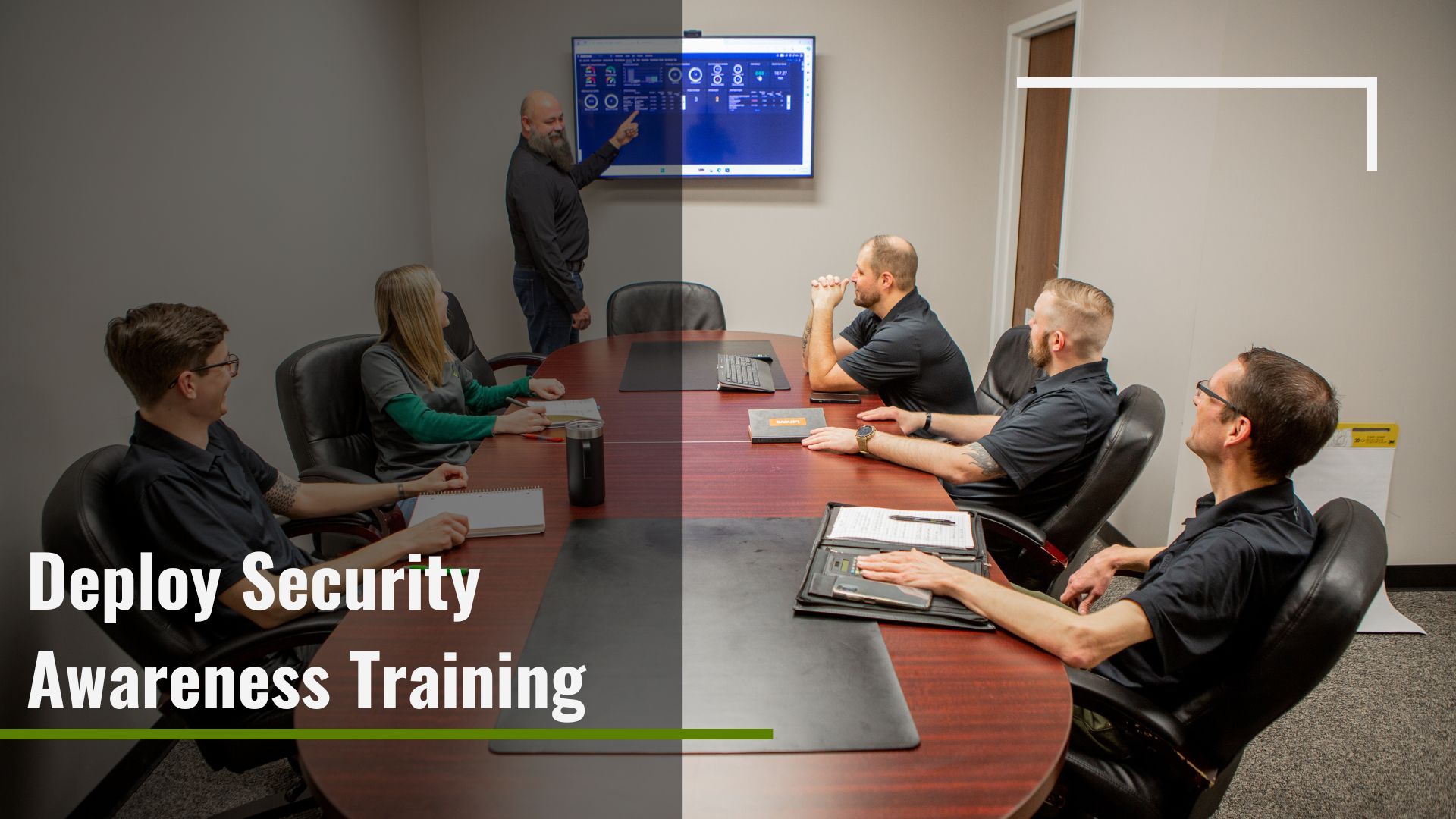How to Deploy Security Awareness Training for Your Business

Phishing emails are one of the most common cyber threats in today’s digital landscape. About 3.4 billion phishing emails flood inboxes every day, and that doesn’t even include “smishing”: text message scams that are becoming more and more popular. A good majority of people and businesses across America receive phishing emails daily. They are a constant threat to your cybersecurity efforts and are the reason why security awareness training from your managed service provider is critical.
Security awareness training teaches your employees how to identify and combat cyberattacks, reducing your company’s risk.
Why Employees Need Security Awareness Training
Here’s another alarming statistic for you: Studies show that about 90 percent of all security breaches involve human error. Scary, right? Humans may be the weakest link in the cybersecurity chain, as one single click of a link can have devastating consequences.
When a cyberattack on your company occurs, these three things can happen:
- Sensitive data, like personally identifiable information (PII) or intellectual property can be lost.
- Reputational damage can severely affect your business, as your customers’ trust in you could be destroyed.
- Financial loss can also occur in the form of fines, lawsuits and potentially stolen funds.
Security awareness training (especially a program conducted by your trusted cybersecurity partner) can help eliminate these risks.
Make Security Awareness Training Effective and Engaging
To be more effective, your security awareness training needs to happen regularly. Remember, dull, information-dump style training is not effective. Employees learn more when the training is short and engaging. How do you make that happen? Use microlearning, positivity and frequent training to increase employees’ knowledge.
Microlearning is a technique where you give information in short, easy-to-digest models that fit into a busy schedule and don’t overload employees with information. While we may think that fear tactics work, with security awareness training they are a non-starter. Employees may think you are overreacting and that the issue is not that serious. Leave those fear tactics at the door and opt for a positive, sometimes even humorous, approach to improve information retention.
Security awareness training should never be a one-off event. Instead, you should plan for regularly scheduled intervals and be sure to fully train new employees.
Essential Awareness Training Topics
Focus on these topics in security awareness training:
- Password security: Educate employees on creating unique, strong passwords, implementing two-factor authentication and policies regarding changing passwords.
- Phishing awareness: For the safety of your business, employees must learn how to not only recognize but avoid phishing emails.
- Compliance training: This is a necessity if your company needs to comply with PCI, GDPR, HIPAA or other regulations.
- Privacy issues: Be sure to cover best practices in protecting sensitive customer, partner and company data.
- C-suite wire fraud: More and more, scammers are pretending to be a company executive to steal money. Address this topic in your training.
- Data security: Discuss the importance of safeguarding data in electronic and physical transit.
Who Needs Security Awareness Training?
Everyone! Every person in your company needs security awareness training. This includes executives, full-time employees, contractors and any other person who comes into contact with your data. You may also want to consider training your third-party vendors as well to help mitigate vulnerabilities they may unknowingly introduce.
How to Develop an Effective Security Awareness Training
When crafting your security awareness training you’ll need to make some decisions between pre-built and personalized training and between role-based and risk-based training. Your program should also include real-world phishing simulations and high-quality content.
When comparing prebuilt vs personalized training, consider this: Pre-built training is general training on the most common types of cyberattacks businesses face. Personalized training can address your company’s specific needs and potential threats. Pre-built can be an easier, more cost-effective way to train your employees while personalized training may offer your company more value.
After you decide if you want pre-built or personalized training the next choice is between role-based and risk-based training. Role-based practice personalizes your security awareness training based on the employees’ role in your company and the potential threats they face. Risk-based training focuses more on the unique vulnerabilities that your company faces.
One of the most effective ways to train on phishing attempts is to invest in real-world phishing simulations. These simulations send fake phishing attempts to your employees’ inboxes. Then it tracks who clicks the link or downloads the attachment. When you receive the data, the training can be tailored to meet the needs of your employees.
Whichever options you choose, keep this one thing consistent: Ensure the content is high quality, accurate, engaging and informative. You will want to involve cybersecurity professionals to help navigate the training creation process.
Building a Secure Future
Security awareness training is a necessary investment in your company’s cybersecurity posture, and possibly even required by compliance regulations or your cybersecurity insurance policy. An educated employee is much less likely to click that suspicious link or send financial information to your “CEO.” If you are ready to empower your employees to combat cyber threats, G6 IT can create and train your employees on security awareness. Contact us today to learn more.

